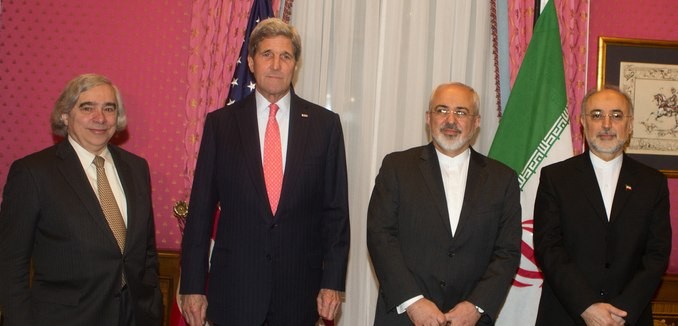The Wall Street Journal reported on Wednesday that Western powers are scaling back their demands for Iranian disclosure about the possible military dimensions (PMDs) of its nuclear program. According to diplomats close to the negotiations, Iranian refusal to comply with the International Atomic Energy Agency’s (IAEA) probes into the PMDs of Iran’s nuclear program has caused a snag in the talks.
According to the Journal‘s report, the Western powers are now seeking a “scaled-back” version of the 2013 agreement between the IAEA and Iran, in which the IAEA put forth 12 questions Iran needed to answer about PMDs, of which Iran has addressed one. In the new approach, Iran would not be required to provide a “full reckoning” of its past work until years into a deal, after sanctions relief has already been implemented.
The importance of obtaining information about PMDs is not to extract a “mea culpa” from the Iranians, but rather to establish a benchmark of their program in order to verify any nuclear agreement. Without full disclosure from Iran on PMDs, it would not be possible to know the extent to which Iran had shut down its uranium mines, shipped off its uranium stockpiles, and stopped its centrifuges from spinning; in other words, verification, a central plank of the Obama administration’s argument for a deal, will be impossible. In Congressional testimony last year, David Albright of the Institute for Science and International Security argued (.pdf), “A deal that does not include Iran addressing the IAEA’s concerns about the past and possibly on-going military dimensions of its nuclear program would undermine the verifiability of the deal, and thus the credibility of a comprehensive deal.”
The rationale for the proposed deal reported today by the Journal, was provided last week by The Guardian, which reported that American diplomats felt that it was better “to focus on limiting the current Iranian programme and worry about allegations about the past a few years down the road.” This sentiment echoes an observation made by The New York Times last year that senior administration officials “seem to be steering away from forcing a full historical accounting from the Iranians before any accord is signed, arguing that excavating the past is less important than assuring Iran does not have the raw material to make a weapon.”
France’s foreign minister Laurent Fabius earlier this week was insistent that the nuclear deal be sufficiently “robust” to convince “regional countries” that the deal will be effective and prevent proliferation. Earlier this week, Saudi Arabia’s Foreign Minister Prince Saud al-Faisal expressed concerns at a press conference that Iran would get “deals it does not deserve” and blasted the Islamic Republic for its support of the Houthis in Yemen.
In an interview with PBS on Monday, Yukiya Amano, the Director General of the IAEA, said that that “our information indicates that Iran engaged in activities relevant to the development of nuclear explosive devices,” but his organization has not yet drawn conclusions. Amano further stated that Iran’s cooperation with the IAEA’s investigation into its past activity “is necessary to restore the confidence of the international community in the peaceful nature of Iran nuclear activities.” He also stressed the importance of a strong verification regime in any deal, particularly referring to the Additional Protocol of the Non-Proliferation Treaty, which would allow snap inspections of suspected nuclear sites. Iran has not been implementing the Additional Protocol, and its nuclear spokesman rebuffed Amano’s request, saying it harmed the prospects of an agreement.
[Photo: United States Mission Geneva / Flickr ]




